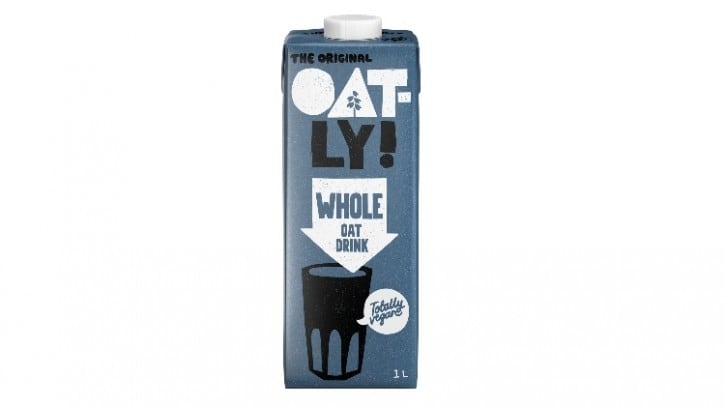Market research agency Impact surveyed 4,000 consumers and asked them to rank 55 food and drinks brand based on their commitment to social responsibility, environmental friendliness, financial responsibility and ethics.
Each aspect is weighted by importance to produce a unified sustainability score, ranging from 0 (lowest) to 100 (highest).
The study is now in its fourth year and saw Oatly ascend to the top spot after ranking third in 2022. The Collective finished in first last year but had to settle for second in 2023, while Linda McCartney Foods was third.
Oatly performed particularly well on health-related metrics, while also scoring highly on packaging and sourcing.
Reacting to the results for 2023, Oatly UK & Ireland general manager Bryan Carroll told Food Manufacture that the firm was “delighted” to see that consumers were recognising its commitment to sharing the “highs and lows of our journey to create nutritious, high-quality, delicious alternatives to dairy without recklessly taxing the planet”.
Carroll added: “But we don't stop with our footprint. We give equal focus to our handprint too. Oatly Barista has a 58% lower climate impact than comparable cow's milk, so we know the more people putting oat drink, rather than cow's milk, in their coffee the better. From revealing the true cost of dairy on people and planet, publishing the carbon impact of our products on every label, or calling on the UK government to make carbon labelling mandatory, we are proud to be playing our small part in realising a more sustainable food system.”
Meanwhile, Darryl Swift, chief executive at Impact, explained that sustainability expectations are increasingly impacting how consumers decide to spend their money.
“To align with these expectations, brands need to focus on several key areas,” Swift continued.
“Sustainable packaging, the use of recycled materials, and the adoption of eco-friendly designs are crucial factors. Practices like local sourcing, reducing carbon footprints, and supporting sustainable farming play a vital role in enhancing brand credibility. Demonstrating a genuine commitment to sustainable practices is not just a marketing strategy, but a necessity to build and maintain consumer trust and loyalty in a market where environmental consciousness is rapidly growing.”
In other news, Food Manufacture explores how the food and drink industry can make improvements in the areas of food safety, hygiene and cleaning.





